The Colour Derma team are experts in camouflage makeup, and we want to help educate as many people as possible about the various skin conditions that afflict many people around the world. While some people may look at skin ailments as nothing serious, they can have a tremendous impact, physically, emotionally, and psychologically on those who suffer from them, including people with hyperpigmentation.
Hyperpigmentation is a relatively common skin condition, affecting around five million people in the United States alone. These are dark patches of skin that can occur on different parts of the body for many different reasons, often in what looks like freckles or age or “liver” spots, hence its prevalence. Here we discuss the various forms of hyperpigmentation using various sources such as DermNet NZ, WebMD, and the Australasian College of Dermatologists.
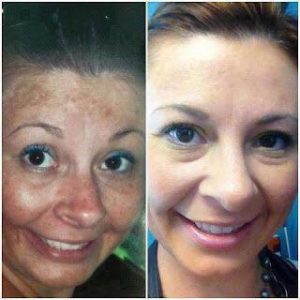
What does hyperpigmentation look like?
Your body produces melanin, which is a pigment that gives your skin its colour through melanocyte skin cells. Melanin also contributes to hair and eye colour. It is believed that it may help protect you from ultraviolet damage. Under certain circumstances, your body may start producing more melanin than normal in various parts of your body, creating dark patches, often tan, brown, or even black. This is hyper-pigmentation.
Depending on the cause, hyperpigmentation can spread, but in some people, it can fade over time. There is usually no physical pain involved, but there are cases where itchiness or skin thickening could occur. As there are a wide range of causes, we will discuss the most common types of hyperpigmentation and discuss treatments in general terms in this article.
What are the main types of hyperpigmentation?
Hyperpigmentation can occur from getting too much sun or from taking certain medicines. But it can also come about due to underlying physical conditions such as pregnancy or diseases such as melanoma. Here are the main types:
- Freckles. Yes, those little spots inherited from your family is a type of hyperpigmentation. Usually more noticeable among people with lighter skin, freckles can darken from sun exposure. They are typically harmless unless they are irregularly shaped, blurry or have different shades. Then you should get them checked out by a dermatologist.
- Solar lentigines, or photoaging. Most people will know these as liver spots or age spots. Unlike freckles, these are caused by exposure to UV radiation from being out in the sun too long, and, as one of the names implies, usually occur in older people. They are often larger than freckles and could thicken. These definitely should be monitored regularly.
- Melasma. While both men and women can develop melasma, it is most common among pregnant women. Triggered by hormonal changes, this type of hyperpigmentation usually happens on the face and abdomen.
- Post-inflammatory hyperpigmentation. This is usually a temporary condition caused by an injury to the skin, which includes acne, burns, dermatitis, or some infections. It could also come about from overdoing such treatments as chemical peels or dermabrasion.
- Drug-induced hyperpigmentation. As the name suggests, medications cause this type of hyperpigmentation. These drugs can include non-steroidal anti-inflammatory drugs (NSAIDs), antimalarials, certain antibiotics, and some antipsychotics.
Even though there are many different types of hyper-pigmentation, none of them are infectious. However, some forms could develop into melanoma or skin cancer, and they should be taken very seriously.
Nevertheless, if you have a very noticeable case of hyperpigmentation, you may feel self-conscious, even if it is temporary. This could impact your emotional and psychological health as well. You should seek support if this is so. Talk to your doctor, or contact us, to find out about support groups.
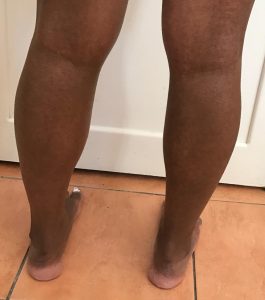
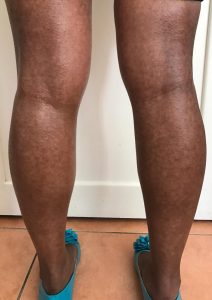
How do you treat hyperpigmentation?
The sun may not cause every type of hyperpigmentation, but it can contribute to its appearance and persistence. So, while there are other hyperpigmentation treatments, it cannot be overstated how important proper sun protection is. You should make sure you are properly covered up and using the highest SPF sunscreen available. For hyper-pigmentation on your face or exposed skin, you may want to go even stronger than sunscreen and reach for sun blockers like zinc or titanium oxide.
In addition to sunscreen or blockers, there are topical treatments that can help. This could include products with hydroquinone, azelaic acid, tretinoin, cysteamine, or corticosteroids. Some of these are skin bleaches that may require a prescription. Vitamin C, liquorice extracts, niacinamide, and retinol may also be effective, but in some cases, you may need to combine them for better results.
Cryotherapy or laser treatments have been known to help with photoaging and post-inflammatory hyperpigmentation, but there can be a chance of scarring. This is also the case with dermabrasion, chemical peels, and intense pulsed light therapy (IPL). You may want to test a small or inconspicuously placed area first to make sure you will not aggravate the hyperpigmentation.
Camouflage make-up is an effective, non-invasive way to cover-up hyperpigmentation. When properly matched to you skin tone, you can have an even, natural look without having to take any drugs or risking any scarring from other more invasive methods.
And as mentioned before, in some cases hyper-pigmentation will fade away on its own. In the meantime, you may want to just use sun protection or camouflage makeup as nature takes its course.
Regardless, you should consult with a trusted medical professional to make sure you are choosing the best course of action. This is especially so if you want to try a treatment that is new or unproven, such as a new cream with an “amazing” new ingredient. A little caution at first may save you a lot of accutane heartache in the future.
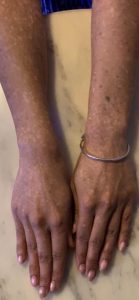
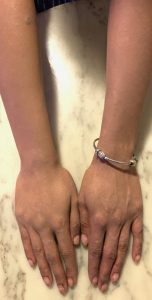
Colour Derma understands hyperpigmentation
Julie and the entire Colour Derma team have spent years assisting people with various skin conditions. We understand hyperpigmentation in its many forms and can help you choose the best solution from our full range of camouflage makeup products. From minimal concealment to full coverage and more, contact Colour Derma today to discuss how we can help you look your best every day!

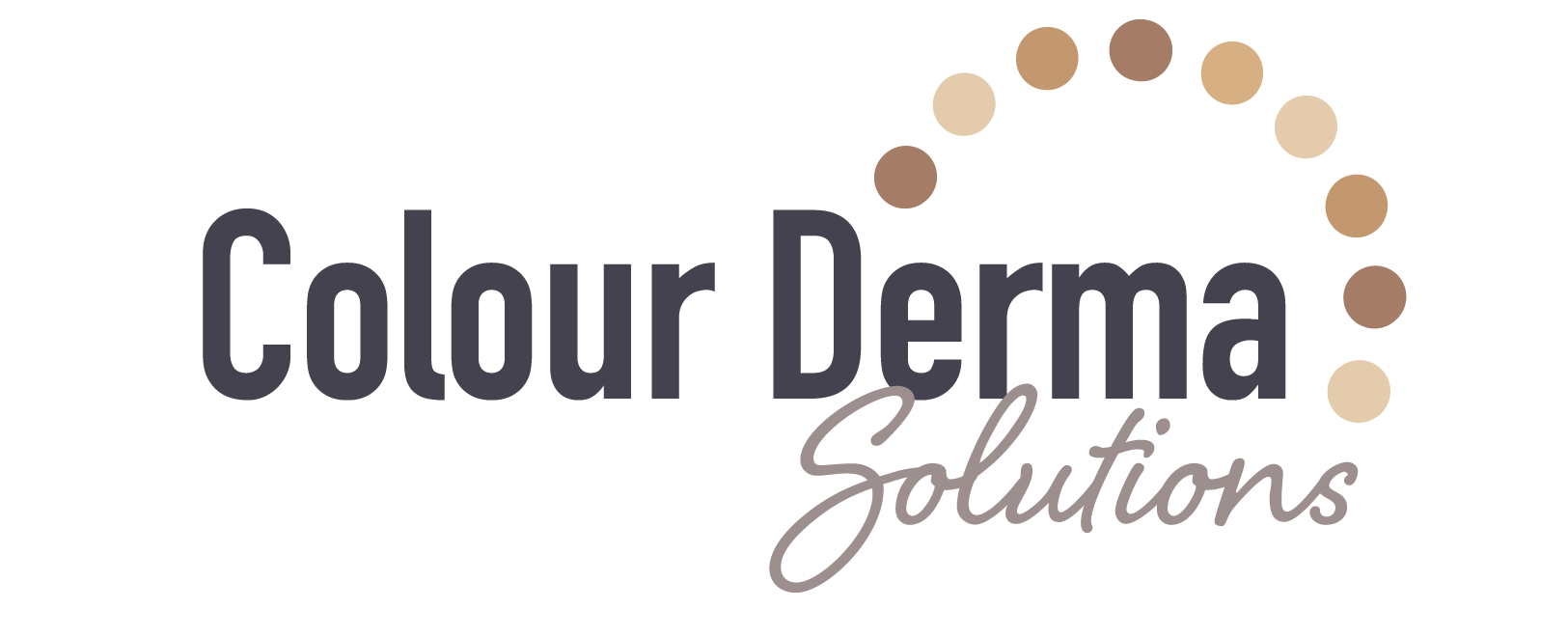
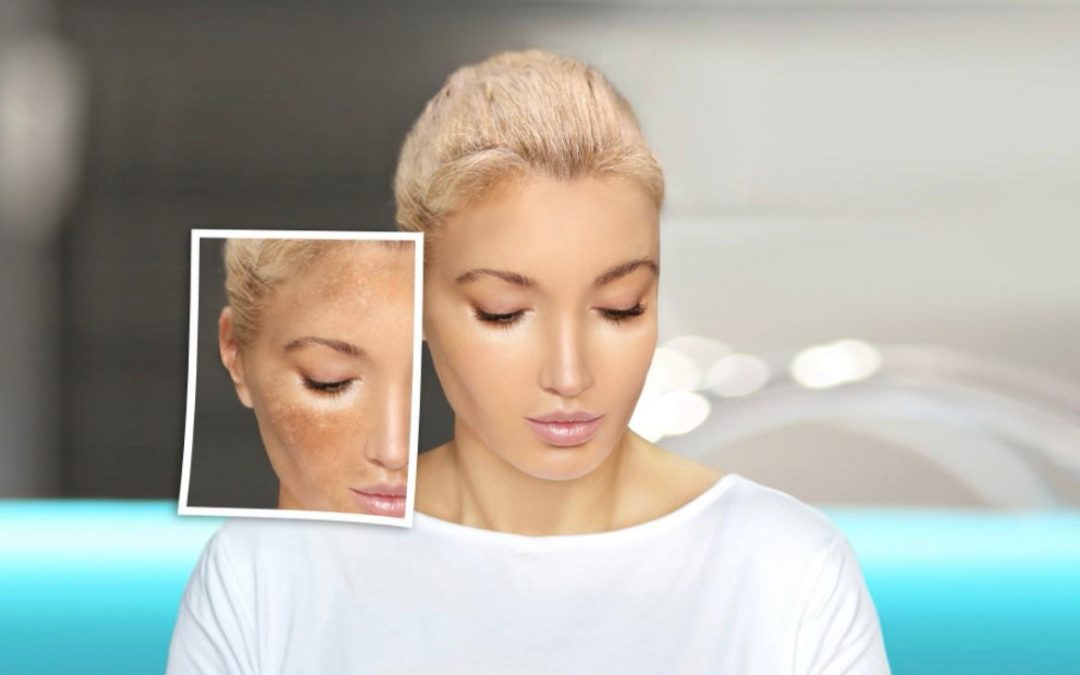
Recent Comments